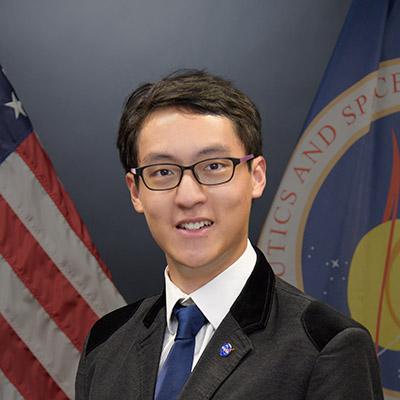
Alan L Yeung
Alan Yeung
BSAE, 2023
What is your next adventure?
I'm currently applying to a couple of Ph.D. programs. My research will focus on spaceflight operations specifically in orbital megastructures and how to construct them. I’m accepted into the BS/MS program here at Georgia Tech as well. I will be interning at JPL this upcoming spring. Currently, I'm on the Lunar Flashlight team as a flight director and also a mission operation engineer on the VISORS team. I definitely want to continue my work in those areas. Ultimately, I plan to go into industry.
What about your next adventure are you most looking forward to?
I’m looking forward to researching, learning, and understanding flight operations and human factors in spaceflight. I want to know what flight controllers need to be aware of and how they react to anomalies. It will be very useful in my research because I want to research the space operations field but in the context of building large-scale structures or megastructures in space that involve human habitation. This involves proximity operations of perhaps hundreds of spacecraft in tandem to build these orbital structures. There are so many questions to be answered like: How do we deal with that? How do we create fault response structures? How do we have enough operators and valid human-computer interaction systems to safely? How do you operate in that environment? So, I'm excited to kind of delve into that realm and continue down that kind of research path.
Did you have any previous co-op, internship, or research experience in this area?
I started at the Georgia Tech Space Systems Design Lab in August of 2022, working as a mission operation engineer and a flight controller for Lunar Flashlight, which actually launched on December 11, 2023. We are still operating that spacecraft today. It is a 6U CubeSat originally intended to search for water ice on the Moon. After NASA JPL ended their portion of the mission, we continued to operate the spacecraft as a doorway to validate the technology onboard. We currently fully own it, and it is fully run by an undergraduate team where I worked. As the flight director for that project, I am responsible for, and working in coordination with, the flight controller teams to operate and command it.
My research directly led to me getting my internship at NASA Johnson Space Center, working on human spaceflight operations with the United States Visiting Vehicles Group for the International Space Station (ISS). I worked with every US vehicle that interacts with ISS in proximity operations, such as Dragon and Cygnus. It was an amazing experience, and it built upon my flight operations interests.
I also worked on Sierra Space’s Dream Chaser vehicle this past summer as an intern. That was a great experience, getting into the human space flight field.
How did your educational experience at Georgia Tech help you to achieve your goals?
Georgia Tech has special opportunities that you won’t find elsewhere, like the Lunar Flashlight mission. We are the first undergraduate student university team to be allowed to operate a NASA spacecraft as the primary operator. So, it's a unique relationship that we have that you won't get elsewhere. The primary mission objective was to do a technology demonstration of our laser payload and our propellant. We wanted to demonstrate that we could use the ASCENT Propellant, which is a far less toxic fuel compared to hydrazine.
We also wanted to prove that we could utilize our four-laser reflectometer. When we couldn’t reach the Moon, we sought to test this instrument by seeing if it would be possible for us to fire these lasers in space and whether we could see them at observatories on Earth, which we did.
Overall, those are successes for the technology demonstration mission. We knew that we could fire the lasers and we knew we knew this propellant worked. We’ve escaped Earth’s orbit, and we’re currently in solar orbit. We are using our star tracker as a kind of image taker for an image campaign for Professor John Christian’s Optical Navigation group.
Also, Georgia Tech was instrumental in building out the fundamentals and allowing me to get involved with the areas that I’m interested in. I realized very early on that I wanted to go into that system, engineering space, and the flight operations realm. What's really great is that you can just email a professor to ask for an opportunity. I emailed Professor Glenn Lightsey a couple of times and after a couple responses he said, "Yeah, I have this great project for you".
What advice would you give to an underclassman who would like to follow the same path?
Seek out the upperclassmen early because they will have the experience to give you input and guidance.
Be persistent. Asking doesn't hurt. So, if you keep asking, someone's going to end up saying yes. Cold emails are super important, something I learned later in the game, but cold emailing people actually works. If you want to be part of a lab, email the professor and continue emailing them, if they don’t respond right away. Say, hey, I'm still interested in this position. I’d love to have a conversation with you about it, even if you don't have an opportunity right now. It's the best advice I can give.